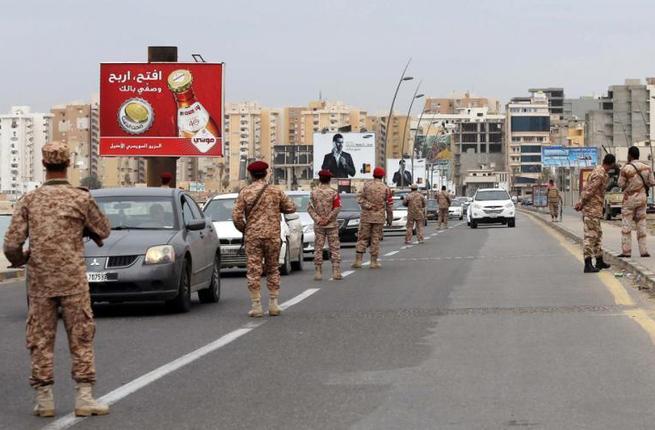Cairo- Libya’s Abdullah al-Thani-led authorities revealed that over a thousand U.S. soldiers have slipped into the country, taking up base in one of Tripoli’s suburbs.
Al-Thani’s self-declared government in the eastern city Al Bayda issued a statement saying that data shows over a 1,000 U.S. soldiers were logged entering Tripoli, without giving any further details.
The pro-parliament government – based in Tobruk, a port city on Libya’s eastern Mediterranean coast- was shocked to find out that Italian troops disembarked in Tripoli, as other information indicated that over a thousand U.S. clandestine troopers entered and are now stationed in one of the suburbs.
One of the three conflicting authorities in Libya, al-Thani’s self-pronounced government considered that the presence of Italian boots on Libyan grounds is a loud and blatant meddling in Libya’s internal affairs and overriding its sovereignty, noting that it represents a first step to a potential occupation that will be confronted and resisted by all Libyans.
Meanwhile, the internationally revoked Khalifa Ghwell’s National Salvation Government forces seized control over Tripoli’s four new ministerial buildings, pushing the crisis further.
Khalifa Ghwell told The Associated Press by phone from Tripoli that his forces control the ministries of defense, labor and the “martyrs and the wounded.” His so-called National Salvation government was formed by the outgoing parliament after a disputed 2014 transfer of power that led to the establishment of rival governments, each backed by an array of militias.
The U.N. helped establish a third government in Tripoli last year under Fayez al-Sarraj, a Western-backed technocrat, hoping he could unify Libya and lead the fight against extremists.
At the moment Libya has three centers of power. The first is the Presidential Council, which has been based in Tripoli since 30 March 2016, and is internationally backed.
The second center of power is the rival Government of National Salvation headed by Ghwell – resting on the authority of a rump of the General National Congress, the resurrected parliament originally elected in 2012 – is also based in Tripoli, although it no longer controls any relevant institutions.
The third center of power is made up of the authorities based in Tobruk and al-Bayda. The House of Representatives in Tobruk would become the legitimate legislative authority but it has so far failed to pass a valid constitutional amendment to enshrine itself as an authoritative institution.
